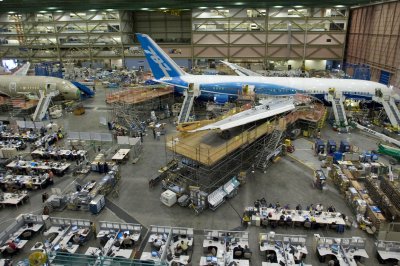Striking St. Louis Boeing Co. machinists reject third contract offer

Sept. 12 (UPI) — More than 3,000 Boeing Co. machinists in St. Louis remain on strike after rejecting the latest contract offer from the aerospace company that seeks to end the strike that began on Aug. 4.
The defense contractor’s machinists rejected Boeing’s third contract offer on Friday and instead will continue the first walkout in nearly 30 years at the Missouri facility, CNBC reported.
“Boeing’s modified offer did not include a sufficient signing bonus relative to what other Boeing workers have received, or a raise in 401(k) benefits,” officials for the International Association of Machinists and Aerospace Workers said in a statement, as reported by CNBC.
“The democratic vote underscores the determination of approximately 3,200 IAM Union members to continue their stand together until their voices are heard,” union officials said.
Friday’s vote nixed a proposed five-year contract that would have raised wages by 45% and paid each worker a $4,000 signing bonus, St. Louis Public Radio reported.
If approved, the St. Louis Boeing machinists would have had their average annual pay rise from $75,000 to $109,000, according to CNBC.
The contract offer would not have changed available vacation time or other benefits offered in two prior contract proposals.
The union said 57% of workers voted to reject the contract offer, which improved upon a prior offer that would have raised their wages by 20% and paid a $5,000 signing bonus.
Boeing Air Dominance Vice President Dan Gillian told CNBC that no additional contract talks are scheduled.
“We’ve made it clear the overall economic framework of our offer will not be changed,” Gillian said. “We have consistently adjusted the offer based on employer and union feedback to better address their concerns.”
Boeing is hiring workers to replace those who are on strike to help the firm meet rising demand for its products, which Gillian called its “contingency plan.”
The Boeing facility produces F-15 fighter jets and missile systems.
Boeing workers in Illinois also walked out on Aug. 4 after rejecting the company’s initial contract offer.


